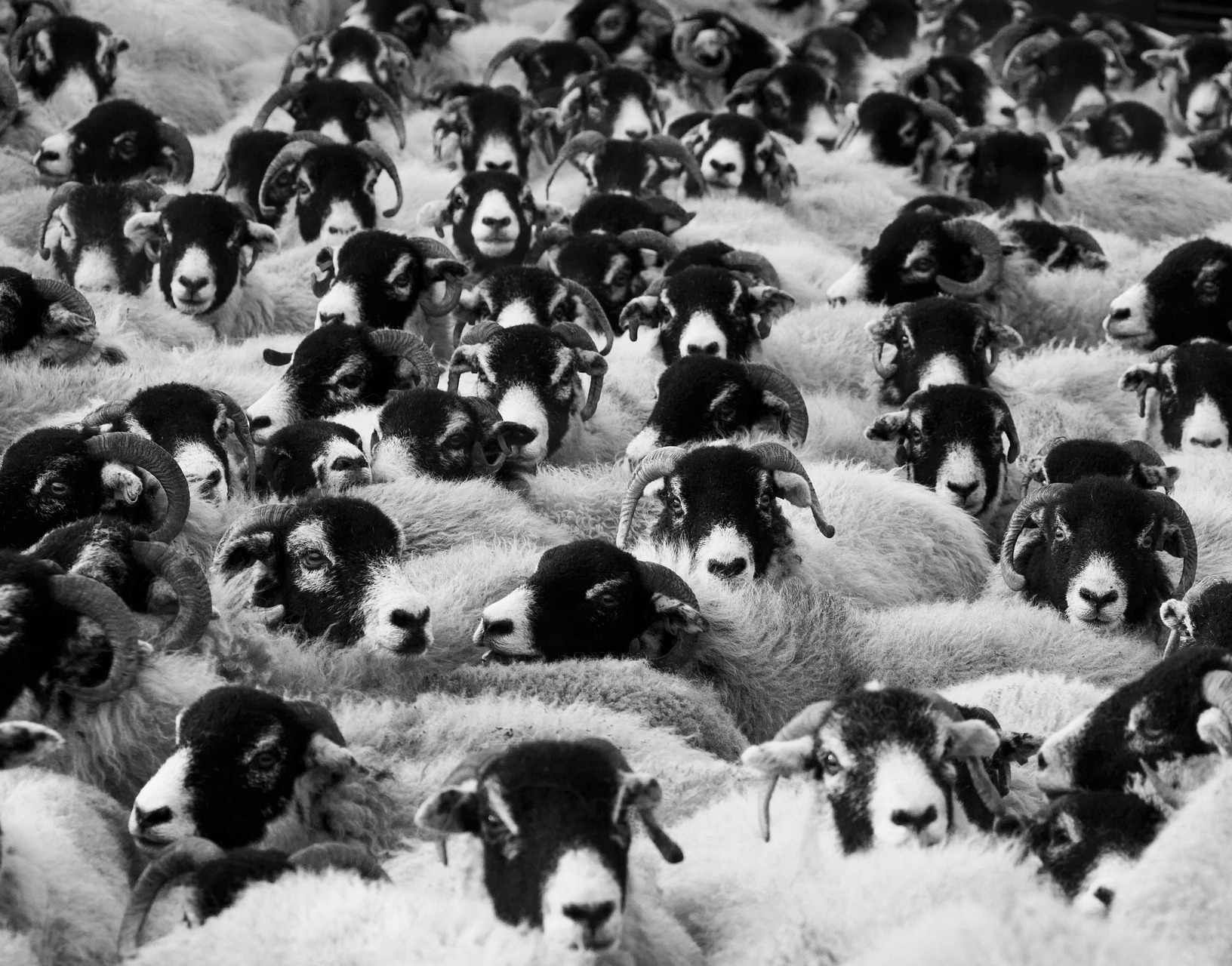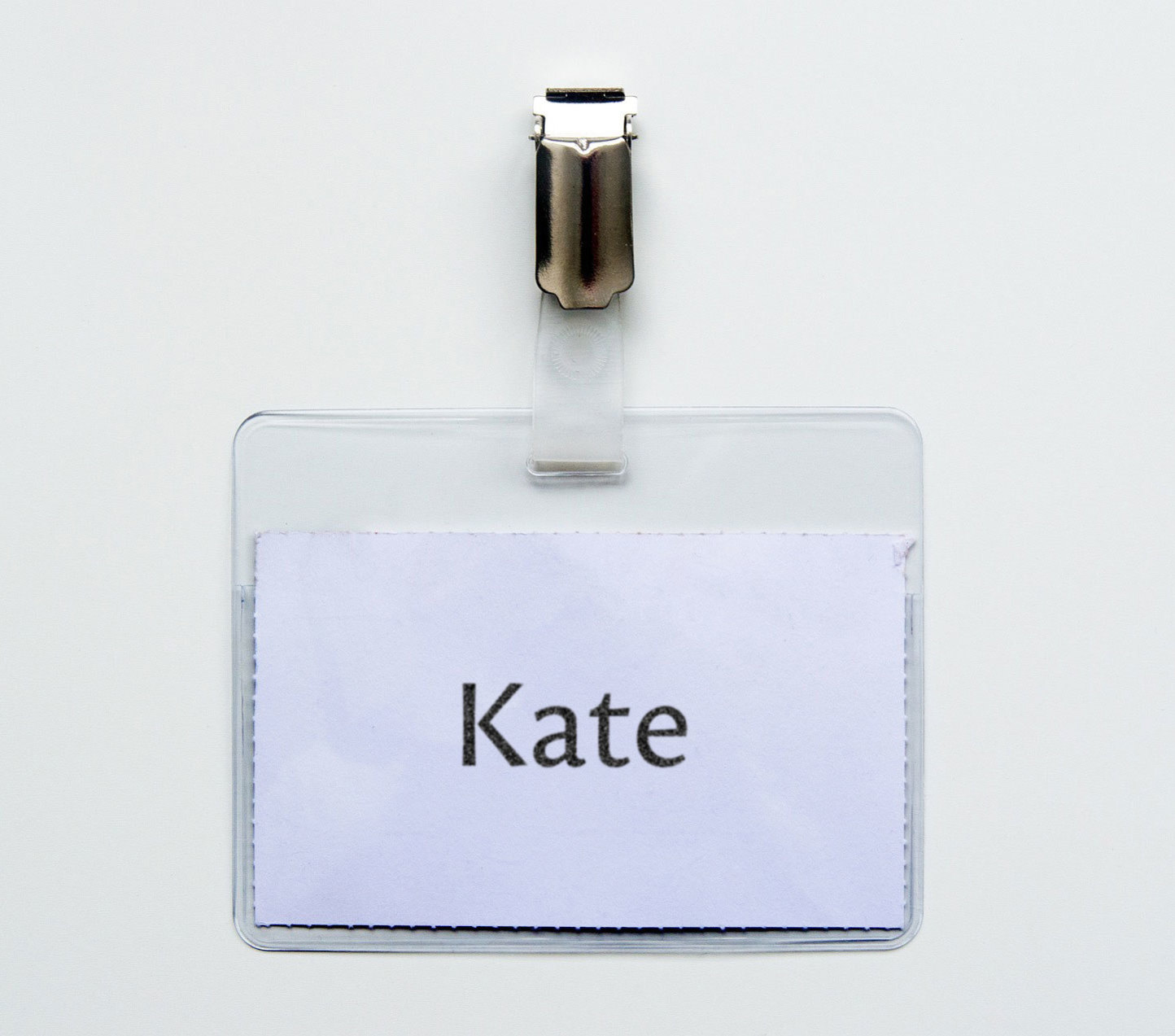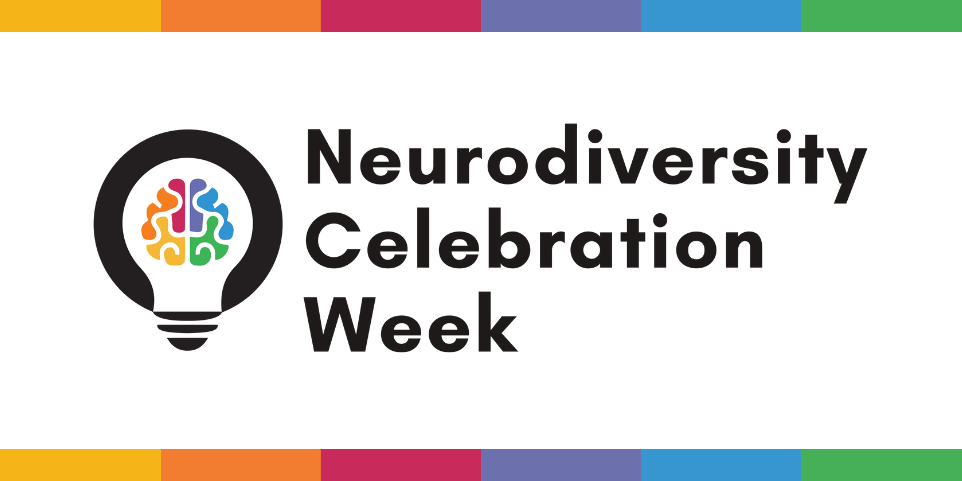Neurodiversity Celebration Week: Living with face blindness
Published on 15th March 2023
I’m Kate, the Development Director here at it’seeze, and to mark Neurodiversity Celebration Week I’m writing about my experience of living with prosopagnosia (commonly known as ‘face blindness’).
What is face blindness?
In medical terms, prosopagnosia is a cognitive disorder leading to problems with face perception. The name comes from Greek words meaning ‘face‘ and ‘non-knowledge’. About 1 in 40 people have some level of prosopagnosia, but most aren’t aware that their difficulty with faces is unusual.
The common name ‘face blindness’ suggests we just don’t see faces — a misunderstanding that isn’t helped by articles using stock images of faceless beings from horror movies. The reality is more subtle. I like to explain it using sheep:
If you look at a flock of sheep, they all look pretty much the same. You certainly wouldn’t be able to tell whether you’d seen any of them before. Just like humans, however, sheep can tell each other apart — studies have shown sheep can individually recognise up to 50 other sheep. For people with face blindness, we still see all the details when looking at faces, but we find human faces no more recognisable than the faces of sheep.

My experience with face blindness
It wasn’t until I was at university that I realised my difficulty with faces was unusual. I was studying computer vision (now known as image recognition AI), and the lecturer was talking about the limits of the technology of the time. She showed us a slide containing photos of faces from various angles, and explained that computers struggled even to detect faces that weren’t looking straight ahead, whereas humans could easily recognise which photos were of the same person. I stared at the photos and couldn’t tell if any were of the same person.
About a year later I happened to see an article about face blindness, and immediately recognised myself in the list of symptoms. You’ll be able to guess some of these, but others are quite surprising.

The most obvious symptom is difficulty recognising faces. Once, on the day a new employee was starting, I walked up to someone I didn’t recognise and started to introduce myself before they interrupted to say they’d been working here for six months!
People with face blindness learn to recognise faces by individual details, rather than holistically. I find it difficult to distinguish people if they look similar, even when they’re standing side by side — which I once asked two employees to do so I could look for something that would help me tell them apart! I also have the opposite problem: if someone changes their appearance I might not recognise them — my wife can tell you how freaked out I was when she started wearing glasses!
I can find TV series and movies hard to follow. If all the characters in a war movie wear the same uniform and have identical buzz cuts then I can’t tell which soldier is which. Audiences are usually expected to recognise an undercover character in a disguise, but I’m no more able to identify a spy than their victims are.
I can struggle to recognise emotions in faces. While I can identify large changes in individual features, such as a smiling mouth or a frowning brow, I find more subtle expressions hard to read. This can sometimes be mistaken for a symptom of autism, but in autism the cause is often a difference in emotional comprehension (known as alexithymia) rather than visual perception.
The strangest symptom is that I struggle to remember biographical details, even though I have reputation for having a superb memory. Researchers believe this is because the brain associates biographical details with faces, so people with face blindness find it harder to recall these memories.
Helping people with face blindness
There’s one practical thing companies can do to help people with face blindness: introduce name badges. At the annual it’seeze conference our local consultants wear names badges because many haven’t met each other before, but I also rely on the name badges because I won’t necessarily recognise people no matter how many times I’ve encountered them before.

I tell new employees about my face blindness and ask them not to take offence if they see me outside the office and I blank them. I hope people accept that if I can’t remember a biographical detail it doesn’t mean I wasn’t listening when they first told me it. In this, as in any other situation, you can’t go wrong by following the principle of treating people with kindness and understanding.

About the author
Kate is the Development Director at it’seeze and creator of our website editor. She created her first website in 1998 and loves to reminisce about the early web, but she also leads our adoption of new technologies so our clients benefit from the latest web platform features. She believes code should be elegant and efficient, and websites should be usable, accessible, and performant.
Share this post:



